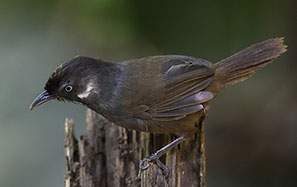Acidifying Arctic Ocean harms ecosystem
XIAMEN -- Clams, mussels and sea snails are struggling to maintain their shells due to increasing acidification in the waters of the Arctic Ocean, according to Sino-U.S. research published Tuesday.
The report in the journal Nature Climate Change claims that global climate change accelerates acidification in the Arctic Ocean.
This is causing the volume of sea snails, an important part of the Arctic food chain, to decline. They are the most common food for salmon and herring, and the change poses a great threat to the ecosystem.
Scientists with the research program concluded that between the 1990s and 2010, ocean acidification was spreading rapidly in the western Arctic Ocean. In 1994, acidified water above 250 meters took up 5 percent of the total. However, this had increased to 31 percent by 2010.
Mary A.S. Lighthipe, professor of Earth, Ocean and Environment at the University of Delaware, with the program, said that the Arctic Ocean was the first ocean where they had seen such rapid and large-scale increases in acidification, more than four times faster than in the Pacific or Atlantic oceans. Chen Liqi, from the Third Institute of Oceanography of State Oceanic Administration of China, also a scientist with the program, said that the Arctic Ocean was the most sensitive area for global climate change.
"The increase in the average temperature in the area is five times that of the earth, which causes rapid melting of Arctic Ocean ice. Every summer, two-thirds of the sea ice melts, making the open water area reach over 10 million square kilometers. Massive uptakes of CO2 from the atmosphere to the Arctic Ocean surface leads to the acidification," Chen said.
The data were obtained through studying water samples taken during cruises by the Chinese ice breaker XueLong (or "Snow Dragon") in summer 2008 and 2010, as well as data from three other cruises.
The scientists measured dissolved inorganic carbon and alkalinity in the samples to calculate pH levels and the saturation of aragonite, a carbonate mineral that marine organisms need to build their shells.
"The research helps us to know the extent and speed of acidification," said Qi Di, the paper's primary author.
Qi and other researchers predicted that the whole Arctic Ocean would be covered with acidified water by approximately 2055.
China has conducted seven Arctic Ocean scientific expeditions since 1999, helping obtain data for research on climate changes, the carbon cycle and ocean acidification by human activity.





















